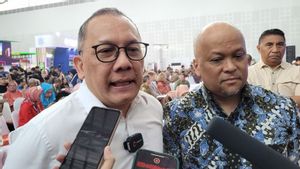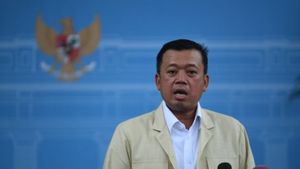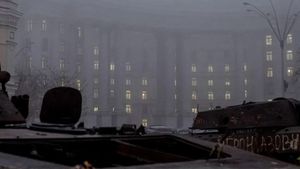JAKARTA - The National Accreditation Agency (BAN PT) revealed that 84 Private Universities (PTS) were threatened with closure. Commission X DPR RI reminded the continuation of student education that carried out learning at dozens of universities.
"Our concern is in student education. So don't let the campus close and then the students don't continue their education," said Deputy Chairman of Commission X Dede Yusuf, Monday, August 12.
According to BAN PT, the closure of PTS was due to the fact that the campus did not pass the accreditation. The non-compliance in the accreditation process is said to reflect not only problems in the management and quality of teaching, but also shows fundamental weaknesses in the higher education system.
Dede assessed that the revocation of permits for 84 PTS showed that these institutions failed to meet the accreditation standards and experienced negligence in management. He asked the campus or related stakeholders, including the Ministry of Education and Culture as facilitators, to help move the campus students to PTS which had been accredited.
"This must be considered. It can be done by distributing students to other accredited universities," said Dede Yusuf.
SEE ALSO:
The legislator from the West Java II electoral district also emphasized the importance of educational rights for all Indonesians. For this reason, Dede appealed to the public to pay attention to the accreditation of targeted universities when they want to study, especially private universities.
"Our concern is that there should be no students who cannot continue their education. So it is important for the public to find out first the accreditation of universities that will be chosen to continue their education," he explained.
The dozens of universities that are threatened with closure are spread across several provinces in Indonesia. Among others in West Java, DKI Jakarta and Sumatra. However, the most are in West Java.
Furthermore, Dede asked all universities to meet the standards set by the Government. Such as human resources (HR), educational facilities and infrastructure that must also comply with standards.
"For all high-rules, it is hoped that they can meet the accreditation standards. Accreditation is clear the requirements, for example, campuses must have as much land as has been determined. Then there must also be professors and the number of teaching lecturers must also be considered," said Dede.
Dede added that an accreditation assessment is also needed as a process of evaluating universities in order to increase public confidence in the higher education system in Indonesia.
"In addition, it also prevents the emergence of doubts about the integrity of the accreditation system," said the former Deputy Governor of West Java.
Nevertheless, Dede assessed that the Government also needed to evaluate the current accreditation system. Is the current system effective and relevant to the growing condition of higher education.
"This evaluation can include adjustments to policies and accreditation procedures to create systems that are more responsive to changes and challenges in the education sector," concluded Dede.
The English, Chinese, Japanese, Arabic, and French versions are automatically generated by the AI. So there may still be inaccuracies in translating, please always see Indonesian as our main language. (system supported by DigitalSiber.id)

















